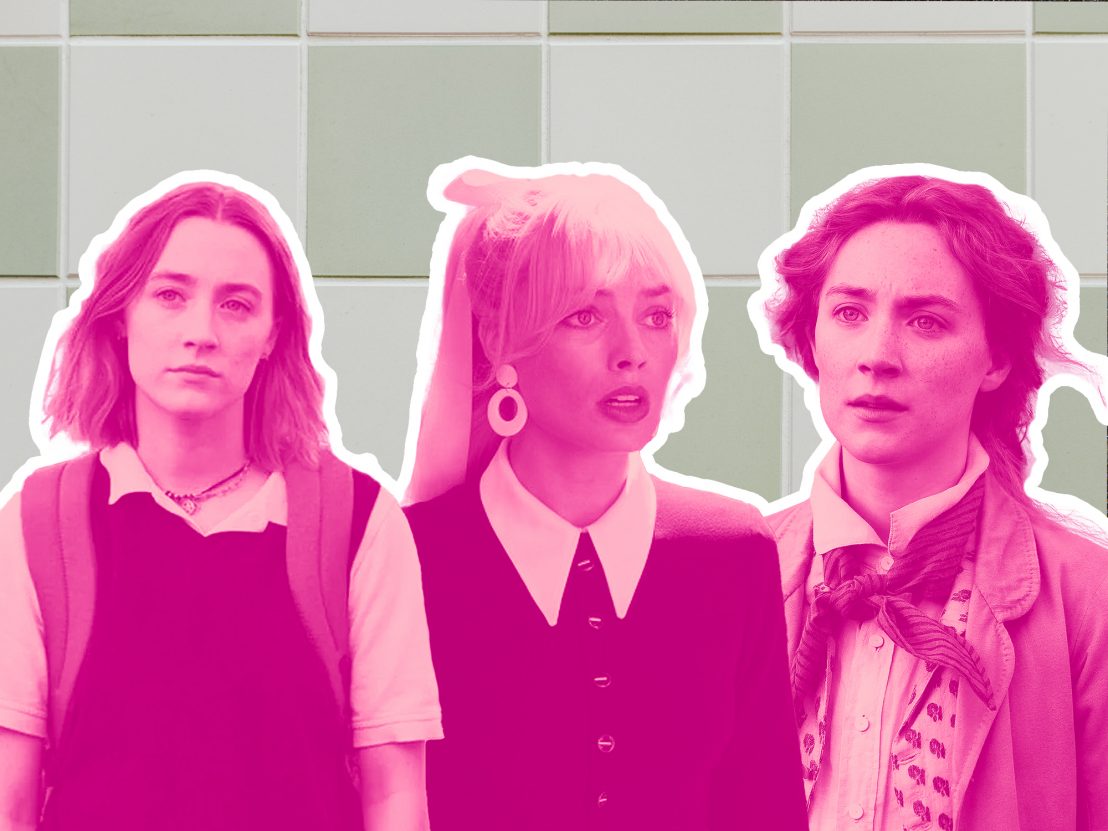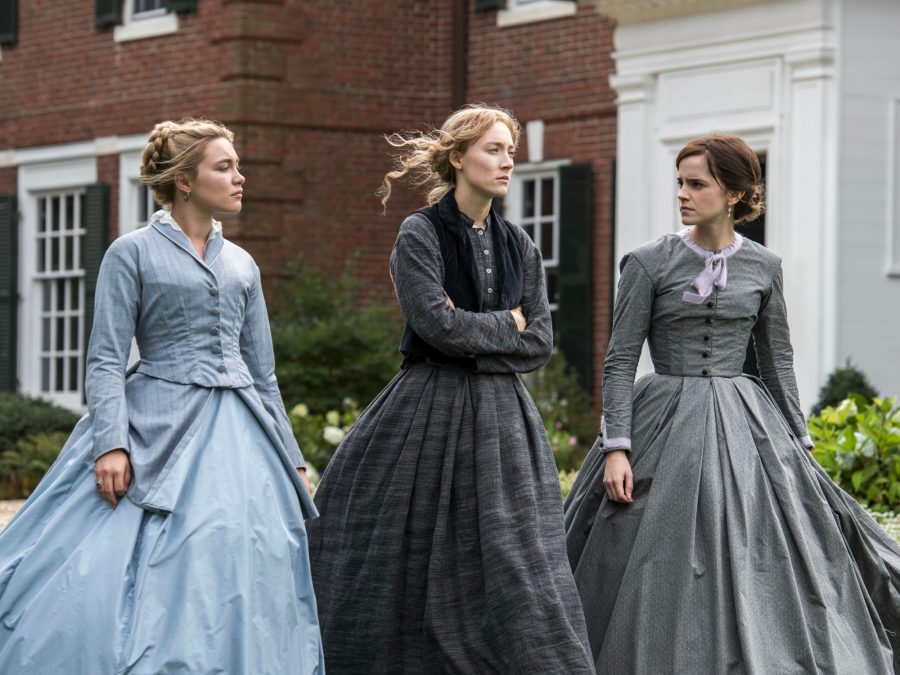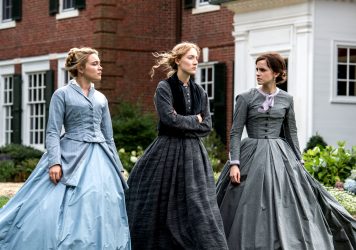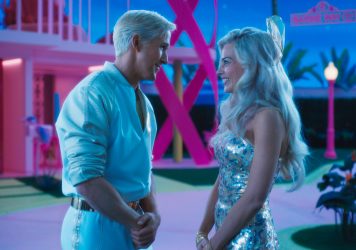
I was 21 years old when I first saw Little Women. It was six days after I broke up with my then-girlfriend, and four days after I had rebound sex in a parking garage with someone I met at a party. During the film, I realized I wanted to become a woman. Busy week, I suppose.
Okay, that’s not exactly true. I did break up with my girlfriend, have rebound sex, and see Little Women all in the same week, but I wouldn’t make sense of the scary and warm feelings that Gerwig’s film roused in me until much later. At the time, there was something deep in my soul which yearned for a life I had not been living, and Little Women gave me a taste of that.
Greta Gerwig’s films were perfect for my younger self to latch onto. I had been questioning my gender for a long time and felt pretty confident that I was not a man, but being not-a-man was not the same as being a woman, and I was not ready to make that leap yet. I felt deeply uncomfortable with masculinity but had no language yet to express femininity. I had never been a girl, so how was I supposed to become a woman?
Enter Greta. The definitive chronicler of girlhood in mainstream Hollywood, Gerwig’s three solo directorial outings – Lady Bird, Little Women, and now Barbie – are all variations on coming-of-age stories. Each is about the process of becoming a woman, chiefly the negotiations and challenges that entails with your family, with patriarchy, and with yourself. In each film, memory plays a critical part in navigating the journey from girlhood into womanhood.
Lady Bird is less about being a girl than it is about remembering what it was like to be one. The post-9/11 period setting and the film’s tendency to linger on details outside of Lady Bird’s point-of-view illustrate this. Gerwig uses the camera to reinterpret her own experiences – the film is set in her hometown, during the period she was a teenager – and as such, the story reflects how her perspective has changed with time and maturity. Teenage resentment ages into understanding for one’s parents as the camera leaves Lady Bird behind and settles on her mother in the car, crying, unable to muster the strength to see her daughter off to college. It’s not quite forgiveness, but reconciliation. Gerwig stitches these memories together to reveal how they inform the woman Lady Bird becomes. Girlhood in Lady Bird is a story refracted through the insights of womanhood, enriched and contextualized by them.
Little Women also approaches girlhood through the lens of memory, this time placing it in direct conversation with womanhood. The twin timelines of the film are adjoined through association; a match cut or an object in a room triggering a flashback or forward, like walking through your childhood home and having memories stirred up by the whispers of the walls. In one such parallel sequence, Jo March dreams of a Christmas morning – perhaps the last Christmas the family were together – tumbling down the stairs, afraid that her ailing sister Beth may be hurt, only to discover her alive and well.
A meal is shared with family and friends, shot in comforting warm tones and soft lighting. When she awakens in the present on a cold winter morning, youthful fright is replaced by solemnity as she slowly descends the same stairs to join her mother in mourning the inevitable – Beth is gone. The two women embrace, the house now grey and sparse, the joy of the family entirely absent. The warm adventures of boisterous girlhood with your sisters are reminisced on from the sobering reality of adulthood, with its bitter compromises and families strained by time, distance, or death.

Gerwig’s first two films are bittersweet masterpieces for me. They opened my world up to a life I didn’t know I wanted to live. I did not read ‘Little Women’ as a child. A doctor said, “It’s a boy!” and so my parents and teachers assumed I would not have been interested in ‘feminine’ things. From the moment of birth, it was seemingly decided for me that a whole world of art and culture and experience would not be of interest to me, not out of malice, just as a matter of course. I would have loved that world. I never got to be a girl, but in these two films, I got a window into what that might have been like. Peering through that window changed my life, but it also breaks my heart to think of all the time I lost living a life someone else designated for me.
It’s common in the trans community to feel loss over the childhood we never got to have. Many of us spent years not living our lives before we got the chance to figure it out. Transition is thought of as a second puberty by many of us, both literally – the physiological changes that hormones and surgeries bring – and symbolically. In this way, it is another coming of age, and a chance to figure out how to be the person you want to be. Like anyone attempting to make sense of themselves, this process is messy and weird and deeply uncool. Transition is also a time of reflection and reinterpretation. Once you realize you are not the gender you were told you were, the entire story of your life becomes tinted by that. In that way, it feels natural that I find myself and my transness in the retrospective girlhood of Gerwig’s first two films. Her third makes this connection even more overt.
Barbie is about someone becoming a woman who was never a girl. Stereotypical Barbie takes the name of her inventor Ruth Handler’s daughter when she chooses to become a human woman at the end of the film, christening herself ‘Barbara’. This fictitious Barbara didn’t have a childhood. She was just an idea, a set of traits that appeal to and enforce a shared cultural conception of gender. She wasn’t alive until she became a woman. The transness of this narrative is evident on its face, but it’s especially funny considering that a common term in the community to refer to trans women is ‘doll’. Barbie is the story of a doll becoming a woman, literally and figuratively.
Barbara feels a deep yearning in her soul which she can’t explain or suppress. It distresses her and – left unattended – paralyzes her with thoughts of death. She wishes she could ignore it. She just wishes, “nothing at all would change” because change scares her, but the more she tries to push her feelings away, the more they affect her. She has to leave the comfort zone of her predetermined social role, and in doing so, she finds women whose experiences speak to that yearning. She sees herself in them. Following in their footsteps – at one point living through their memories – she begins to see herself as a woman. “It’s like I’m a woman already,” she says to her newfound friends as she experiences solidarity with them.
At the end of her journey, Barbara realizes she doesn’t need anyone’s permission – she can be a woman if she wants to be. Given the choice, knowing the consequences could be grave, she chooses womanhood. She chooses to be a woman because returning to her old life would keep her trapped in the plastic abstractions which kept her from being alive. Womanhood allowed her to be more than just a fantasy but a human being, flesh and bone, fully and vitally alive.
A year after I saw Little Women for the first time, I came out as a trans woman to my best friend. Every day since I have felt alive in a way I never felt before. I started hormones just over two years ago. Womanhood is no longer just a fantasy, something I yearned for but couldn’t reach. Today I am a woman in New York City (where culture is!). I am a doll who never got to be a girl but became a woman. This Barbie is trans, happy, and so grateful to have Greta Gerwig’s cinema of young women coming into their own at a time in my life when I was just coming into mine.
Published 1 Aug 2023

Saoirse Ronan experiences growing pains in Sacramento in Greta Gerwig’s delightful indie comedy.

Greta Gerwig delivers one of the great modern literary adaptations with her second feature as writer/director.

Greta Gerwig's behemoth blockbuster is a stranger, more fascinating film than its hyper-corporate marketing would suggest.